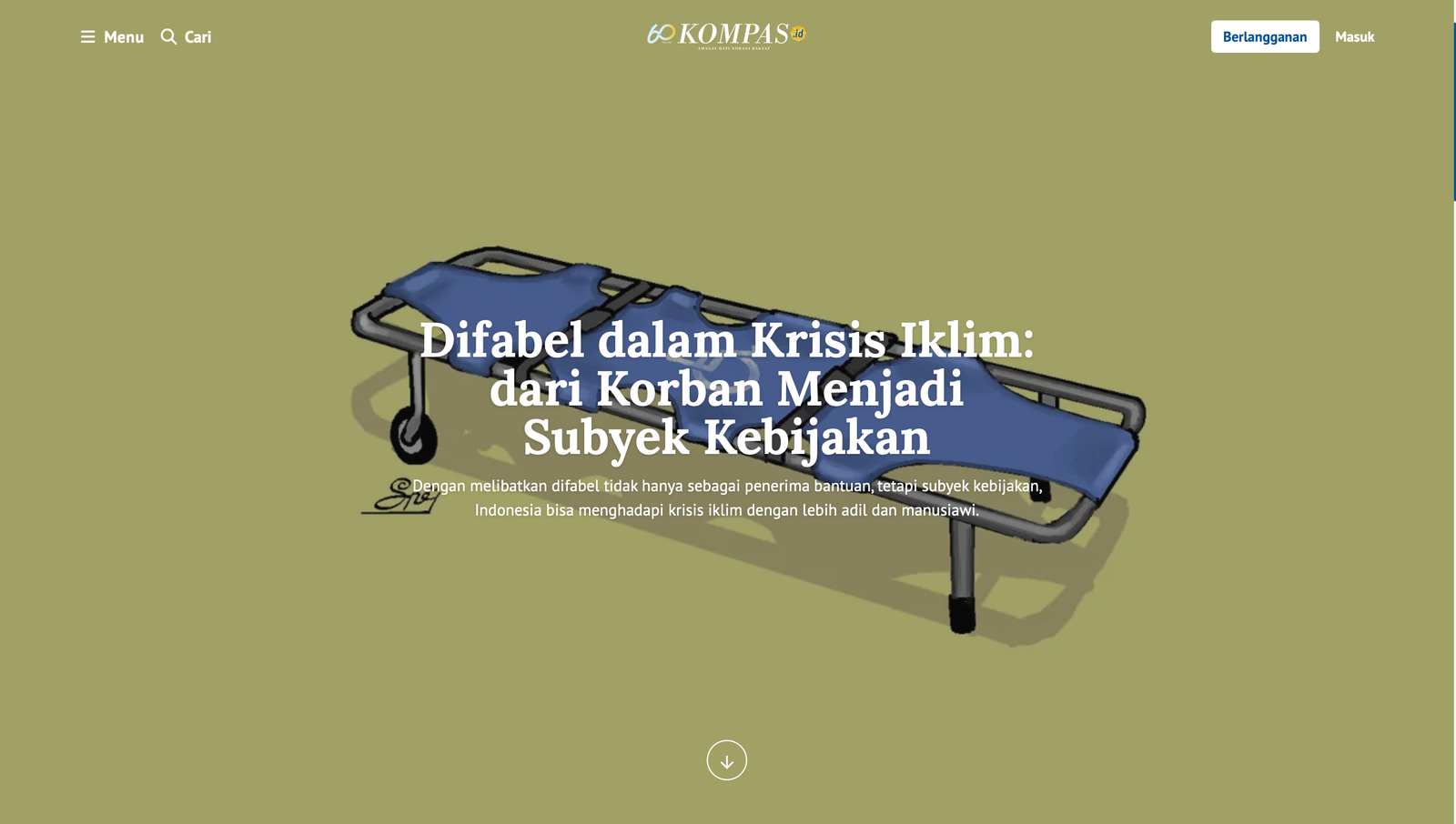📄Persons with Disabilities in the Climate Crisis: From Victims to Policy Subjects
By Nur Syarif Ramadhan, Kompas (Opinion, September 14, 2025)
Climate disasters strike everyone, but for people with disabilities, the impacts are often harsher and layered. Stories from Maros and Makassar reveal how disabled individuals face life-threatening risks during floods and storms while being overlooked in rescue priorities. With an estimated 22.9 million people with disabilities in Indonesia, nearly one in ten citizens, their exclusion from climate action and disaster planning represents a massive gap. This article calls for a shift: from treating disabled communities merely as aid recipients to recognizing them as active policy subjects whose voices, experiences, and knowledge must guide climate responses.
👉 Read the full article to understand why inclusive climate policy is key to justice and resilience.
📄 Precarity in the Shadow of Malaysia’s Oil Palm Trees
By Alfian Al-Ayubby (The Contrapuntal, July 9, 2024)

Through the story of Omes, a teenager who slipped across the Indonesia–Sabah border without papers, this piece traces how kinship networks and clandestine “pengurus” routes funnel Indonesians into Malaysia’s palm-oil plantations. Life on the estates feels like isolated kampongs: long hours, output-based pay (often below the minimum wage), gendered jobs with lower earnings for women, and unsafe chemical spraying with inadequate protective gear. Families live on-site but face high prices, debt as a safety net, costly healthcare, and limited schooling that pushes many children to work early. Raids, detention, and deportations create fear, yet people repeatedly return because their families and livelihoods are rooted in the plantations. The article argues that this “fluid” cross-border movement, sustained by social ties, ultimately serves a system of labor control that keeps plantations productive while migrants remain precarious and right-less.
📄 Climate Actions in Rural vs. Urban Areas: A Reflection of Cases in Central Maluku, Indonesia
By Engel Laisina (Founder and Program Manager of #TarusJagaRumah, August 9, 2024)

When people think about climate action, the focus often falls on cities. But as Engel Laisina reminds us, rural and small-island communities like those in Central Maluku are among the most vulnerable to the climate crisis. Farmers face crop failures from extreme weather, coastal communities struggle with rising seas and coral bleaching, and families see their access to education, health, and livelihoods threatened. Despite this, climate initiatives are often centered in urban areas, leaving rural communities with fewer resources to respond. Local organizations and cultural wisdom play an important role in keeping environmental values alive, but the gap remains wide. Engel calls for fairer, more inclusive climate action that takes rural realities seriously, builds on local wisdom, and engages communities with respect for their values and traditions.

